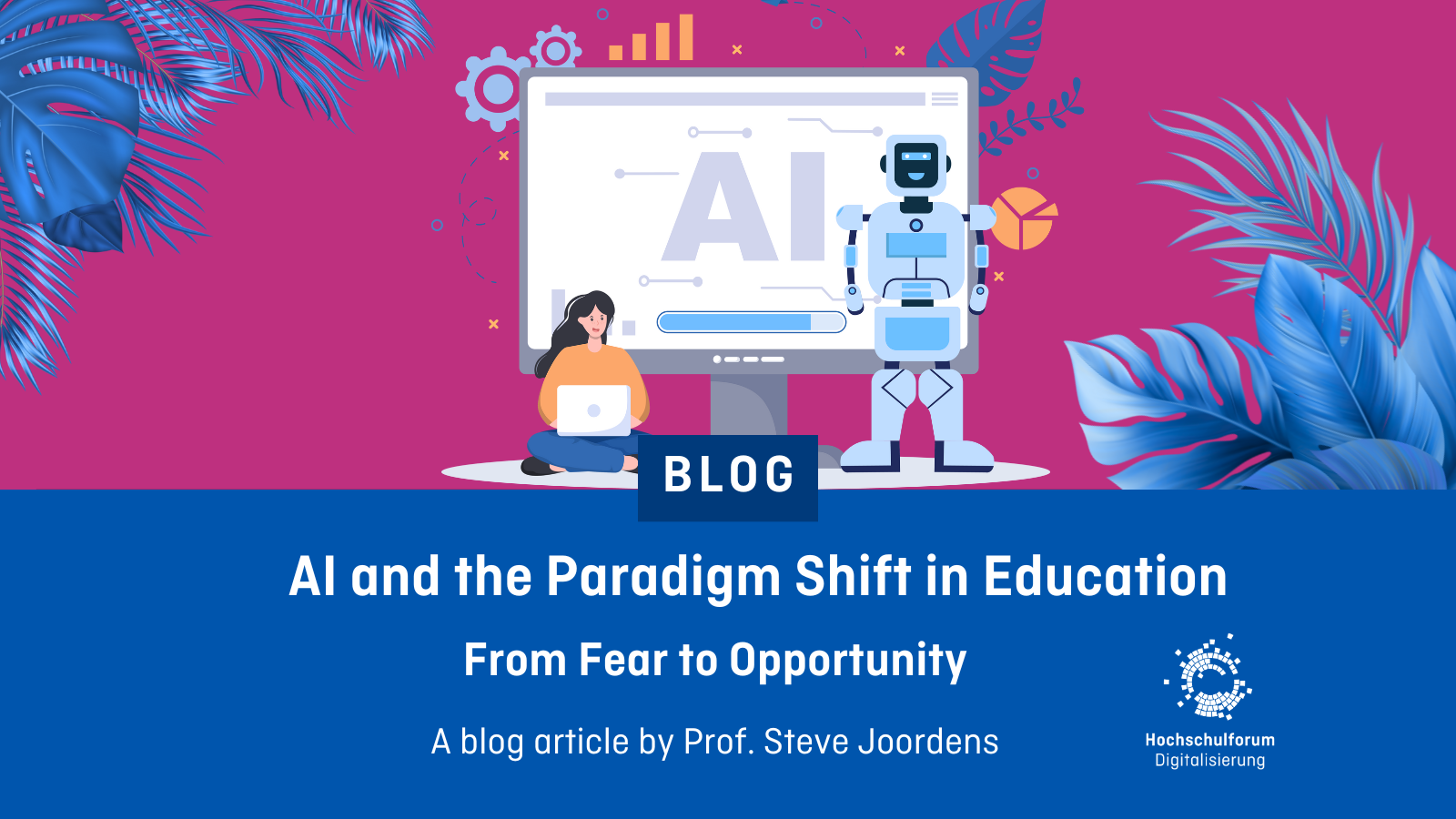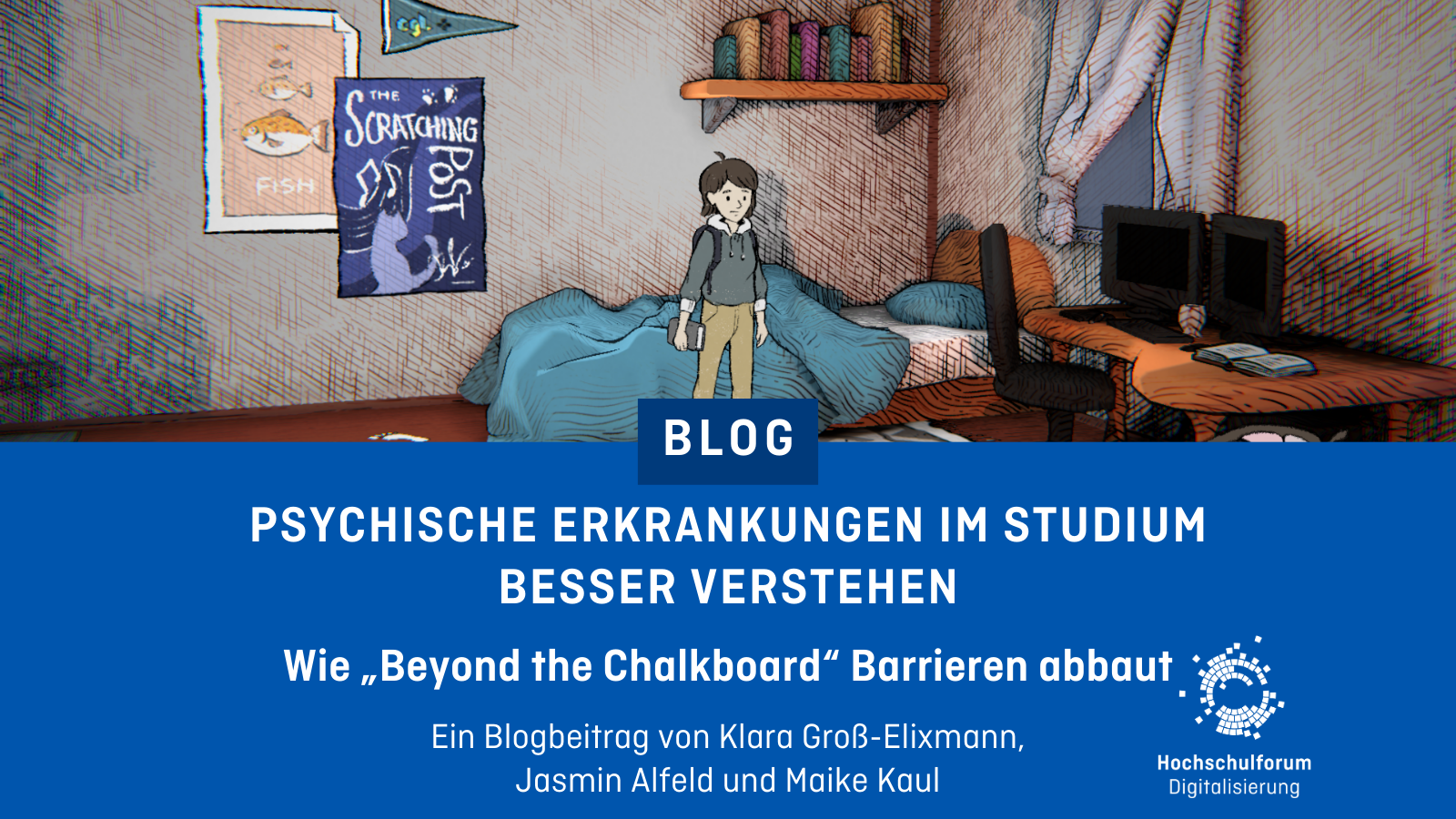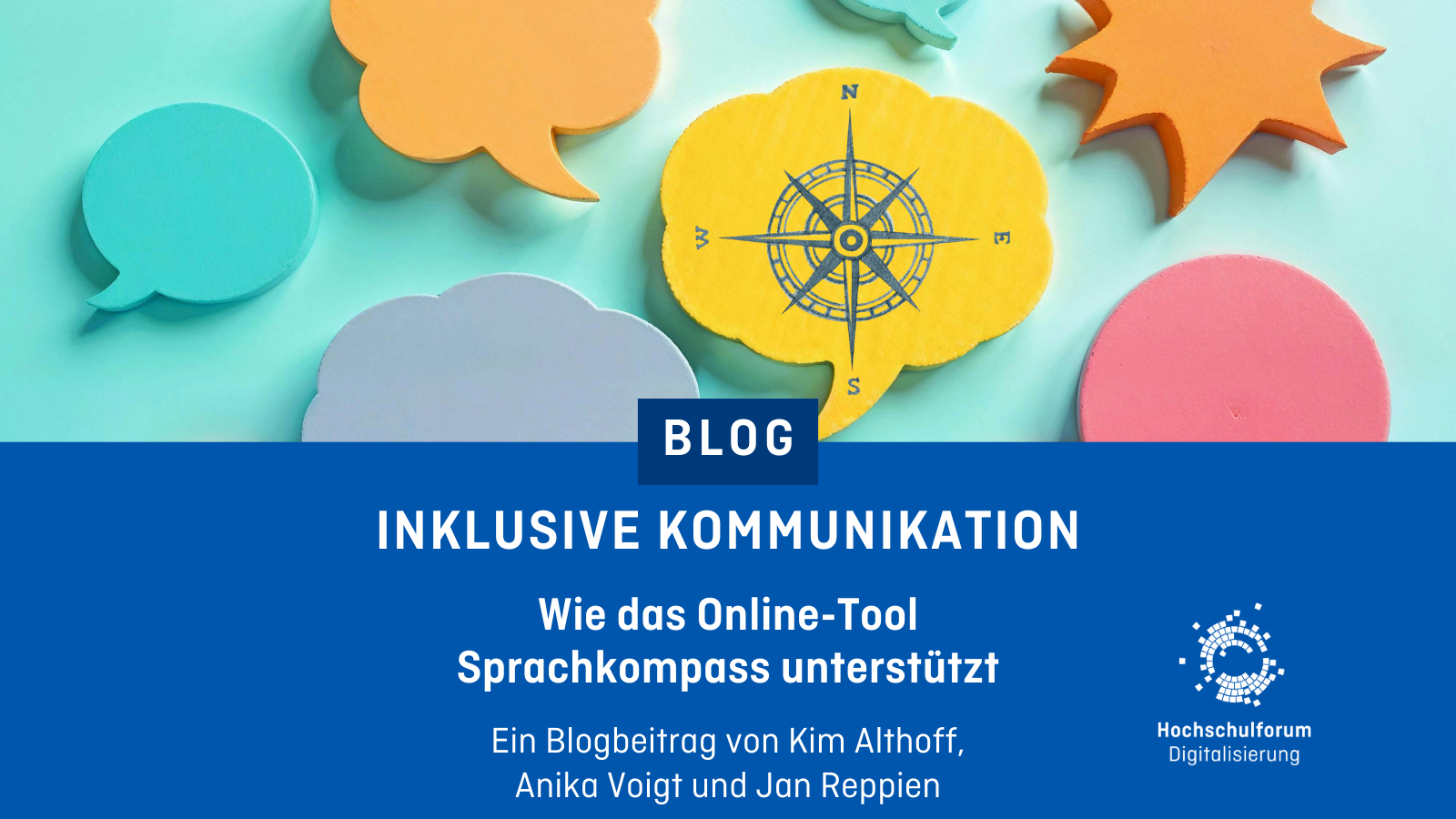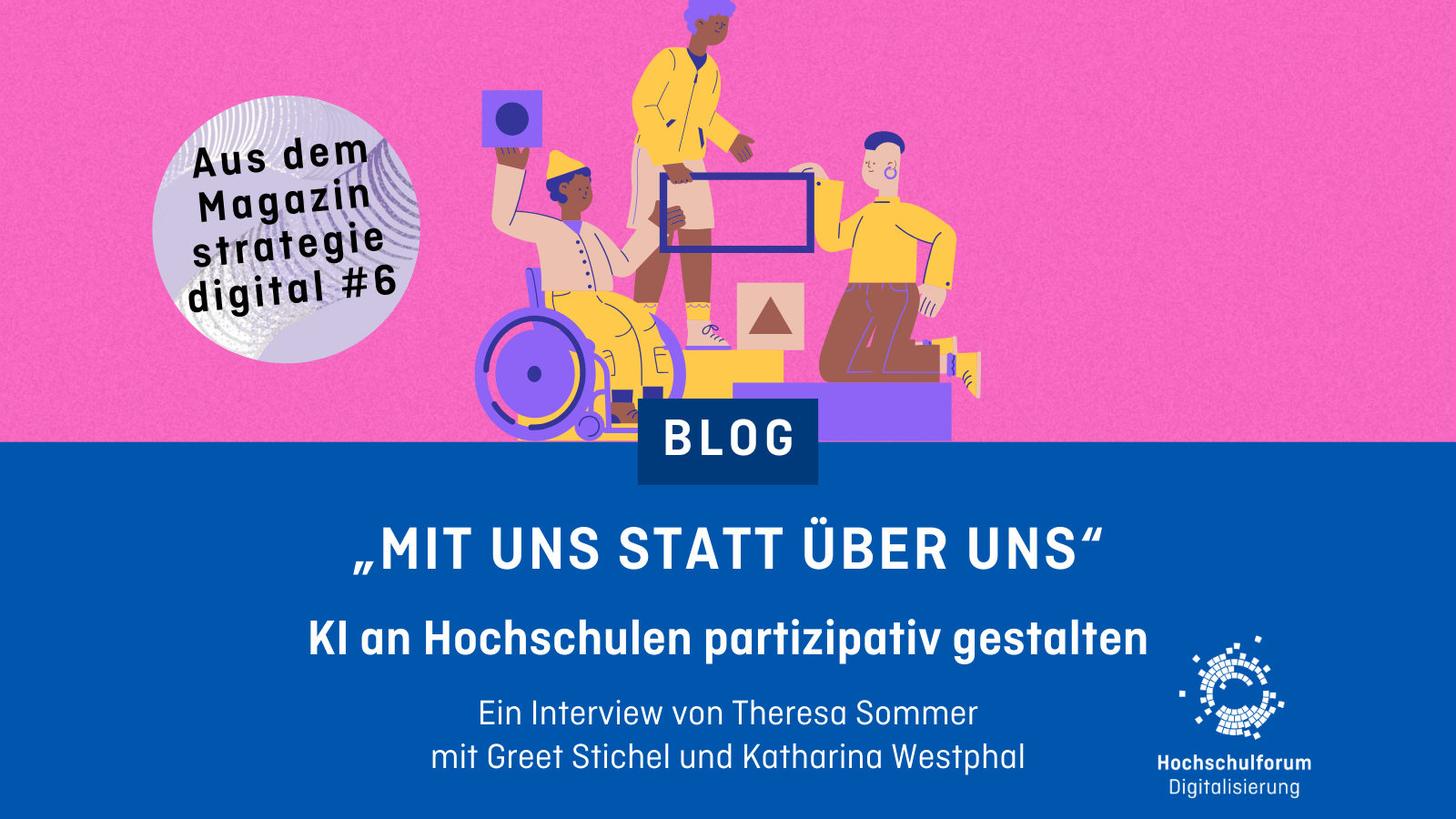AI and the Paradigm Shift in Education: From Fear to Opportunity
AI and the Paradigm Shift in Education: From Fear to Opportunity
30.06.25
The education sector is undergoing a paradigm shift driven by artificial intelligence (AI). In this blog article, Steve Joordens, Professor of Psychology at the University of Toronto Scarborough, considers the implications of this shift for the future of academia. Drawing on his long-standing expertise and his university’s digital transformation initiatives, he takes a step back to consider the broader implications of AI-driven change.
Paradigm Shifts and the Disruption of Tradition
The history of science is marked by paradigm shifts, a concept introduced by Thomas Kuhn (1962) in The Structure of Scientific Revolutions. Kuhn argued that progress does not occur in a smooth, linear fashion but rather through disruptions—moments when existing models break down, forcing a fundamental transformation in how we understand the world. One of the most famous examples is the shift from Newtonian physics to Einstein’s theory of relativity. Newton’s laws had been accepted for centuries, but as scientists encountered phenomena they could not explain—such as the behavior of light near massive objects—it became clear that a new framework was needed. Einstein’s work did not merely modify Newtonian mechanics; it revolutionized our understanding of space, time, and gravity.
Today, education is facing its own paradigm shift, not driven by physics, but by artificial intelligence (AI). Much like previous shifts in science, this moment is marked by the failure of traditional methods in the face of new realities. Nowhere is this more evident than in assessment, where AI is challenging fundamental assumptions about how we evaluate learning.
AI and the Crisis of Assessment
For generations, assessment has been at the heart of education. Whether through essays, problem sets, or standardized tests, we have operated under the assumption that if a student can complete a task correctly, they must have learned the material. But with the rise of generative AI tools, students can now produce high-quality work without deep engagement. Suddenly, a high grade no longer necessarily means deep learning. This threatens the very foundation of our traditional assessment model.
Predictably, the initial response has been fear. Many educators see AI as a tool for cheating, and institutions have scrambled to implement AI detection software and revert to old-school, in-person assessments to maintain control. But history shows that these reactionary responses rarely last. Every paradigm shift begins with disruption, as the old ways of doing things become increasingly dysfunctional. Eventually, we stop trying to patch up a failing system and start asking a more productive question: How can we use this disruption to create something better?
How Do We Get From Fear to Opportunity?
Given everything educators have endured in recent years—pandemic disruptions, shifting teaching modalities, and increasing student needs—it is not surprising that many feel overwhelmed at the thought of incorporating AI into their teaching. The knee-jerk reaction is understandable: “Not one more thing!” But instead of framing AI as a burden, we need to help educators see it as an opportunity.
So, how do we shift perspectives? Wonder is the bridge from fear to opportunity. Before asking educators to use AI in teaching, we should simply encourage them to play with it. Ask AI to suggest recipes based on what’s in the fridge. Get it to write a song in the style of a favorite artist. Ask it to plan a perfect day in a city they’ve always wanted to visit. By experimenting with AI in a low-stakes, creative way, educators can begin to see its potential rather than just its challenges. It also allows them to better understand what it does and how it does it, and this demystification of AI is critical for a reduction in the natural fear reaction.
At the same time, it would be unrealistic to expect every educator to be at the forefront of AI-driven innovation. Instead, we should take inspiration from entrepreneurship and encourage the emergence of “intrepreneurs”—educators working within the system but given the freedom and resources to experiment with AI in creative ways. These individuals could test new methods, refine best practices, and develop concrete use-cases that can then be shared with the broader educational community. Rather than expecting every teacher to reinvent the wheel, we can tap into the curiosity and expertise of those who love the creation process, allowing their discoveries to pave the way for others. The fruits of their work could then spread throughout our institutions in the form of concrete use-cases that any teacher can utilize while feeling competent, and if we ultimately can provide a teacher with a menu of use-cases that support a variety of learning outcomes, that ability to choose fuels the educators sense of autonomy and control, again reducing the fear response.
A Transformative Example: AI and Assessment
To truly illustrate AI’s potential, let’s focus on one of the most deeply ingrained practices in education: multiple-choice testing.
Multiple-choice tests are widely used because they are logistically efficient—easy to administer, easy to grade, and scalable. However, they are also deeply flawed. As standardly employed multiple-choice tests encourage surface-level memorization rather than deep understanding. They do not assess critical thinking, creativity, or the ability to apply knowledge in meaningful ways. A thoughtful approach to multiple-choice design can mitigate these weaknesses to some extent, but only to some extent, and other negatives – like exposing students to false information on every question – are simply part of the process.
What if we could do better?
Imagine a future where, instead of completing a multiple-choice test, a student engages in a conversation with an AI—a viva voce-style assessment where a specially created AI asks open-ended questions, probes for deeper understanding, and adapts based on the student’s responses. The AI could assess not just knowledge recall, but also problem-solving ability, reasoning skills, and communication. It could also provide real-time feedback, allowing students to learn from the assessment process itself, combining assessment and learning.
This shift could be revolutionary because of one simple truth: assessment drives learning. Teachers naturally “teach to the test,” meaning that if our assessments prioritize deeper and more holistic learning, our teaching and classroom methods will follow suit. With AI-powered assessment, we could move away from rote memorization and toward a model that fosters real understanding, skill development, and lifelong learning.
Embracing the Future with Excitement
Yes, AI is disruptive. Yes, it is challenging our traditional ways of doing things. But if we step back, we can see that this is not a threat to education—it is an invitation to improve.
We are standing at the precipice of something extraordinary. The question is not whether AI will change education—it already has and continues to do so on a daily basis. The real question is: Will we resist the change out of fear, or will we embrace it with curiosity, creativity and wonder?
Paradigm shifts are never easy, but they are the moments that define progress. This is our moment. Let’s not just react to AI—let’s reshape the future of education with it.
Author

Professor Steve Joordens is a Professor of Psychology at the University of Toronto Scarborough, where he specializes in cognitive psychology and educational technology. His research explores human memory, consciousness, and the use of technology to enhance learning, with a particular focus on peer assessment and critical thinking development. As the Director of the Advanced Learning Technologies Lab, he has led innovative projects integrating AI and digital tools into education. A passionate educator, Professor Joordens has received multiple teaching awards and is well-known for his engaging online courses, which have reached learners worldwide. He is also a frequent speaker on educational psychology, technology-enhanced learning, and student mental health. His insights have been featured in various media outlets, and he continues to advocate for active, student-centered learning approaches.


 Dr. Klara Groß-Elixmann
Dr. Klara Groß-Elixmann 
 Kim Althoff
Kim Althoff 
 Theresa Sommer
Theresa Sommer 